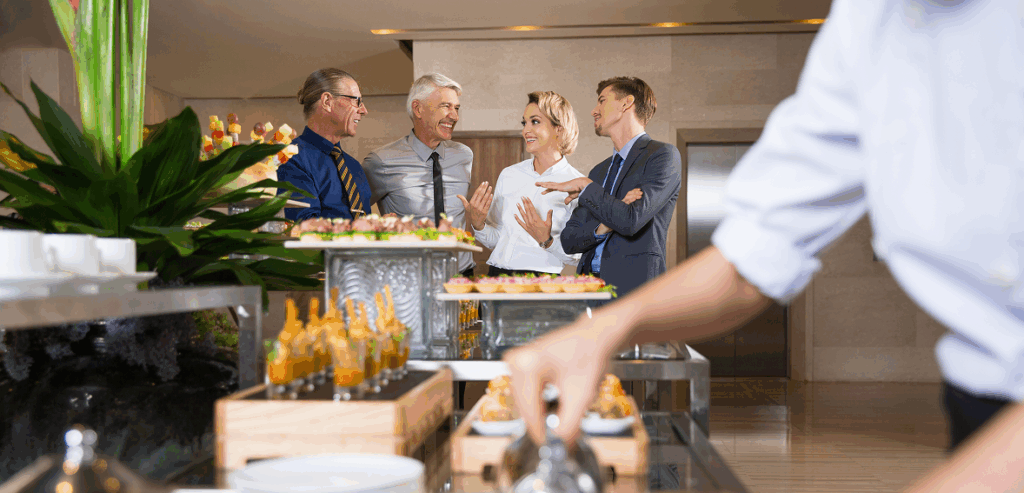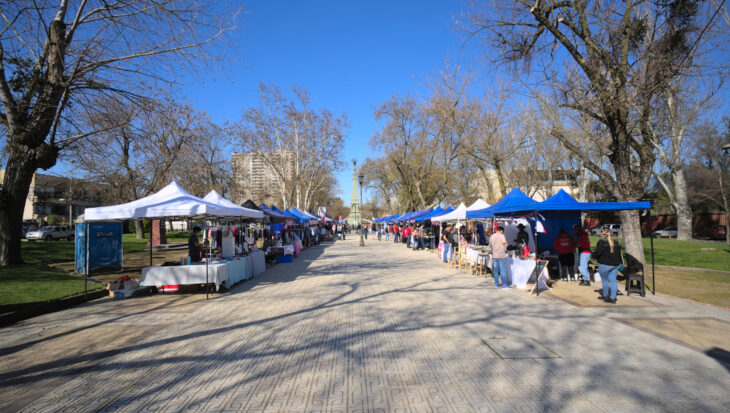Delaware, known for its small size but rich sense of community, has always had a strong tradition of public gatherings. From lively street fairs in historic downtowns to sprawling farmer’s markets and neighborhood parades, the First State has long embraced the power of local events to bring people together. But as time has passed, community events in Delaware have evolved in surprising and exciting ways. Today, tech summits, innovation expos, and hybrid digital events sit alongside longstanding traditions, showing how Delaware balances old and new.
The transformation of these events tells a bigger story. It reflects changes in demographics, economy, technology, and social expectations. What began as seasonal gatherings and arts showcases has turned into a dynamic network of events catering to entrepreneurs, remote workers, students, and global visitors.
From Small Town Roots to Regional Celebrations
Community events in Delaware have always had a strong connection to local identity. In earlier decades, events centered around town squares, schoolyards, and main streets. These gatherings were simple but deeply personal, bringing together neighbors in shared celebration.
The Era of Street Fairs and Parades
Street fairs and local parades were once the highlight of the year in many towns. These events often coincided with national holidays, agricultural cycles, or local school milestones. Vendors set up booths, children marched in costume, and families gathered for music and food.
These events had a distinct flavor depending on where you were in the state. In southern towns, agricultural themes were prominent. In Wilmington and Newark, parades reflected more urban culture. Each event served as a showcase of local pride and offered a moment of togetherness.
Evolving Scale and Organization
As Delaware’s population grew and mobility increased, local events expanded. What once served a single neighborhood began attracting residents from neighboring towns and counties. Organizers began to add more attractions, extended hours, and regional marketing to accommodate larger audiences.
The Rise of Cultural and Arts-Based Festivals
As Delaware became more diverse, its community events began to reflect a broader mix of traditions and artistic expression. This change was driven not only by shifting demographics but also by a growing desire for cultural enrichment and educational engagement.
Inclusion of Global Influences
Modern festivals in Delaware now often highlight cultural fusion. Events celebrating Caribbean, Latin American, Indian, and African cultures have emerged alongside traditional European-rooted fairs. These gatherings include music, dance, cuisine, and storytelling that allow attendees to experience something new while honoring community members’ heritage.
Support for Local Artists and Performers
One consistent trend has been the elevation of local artists. Community events began including craft tents, art installations, live painting sessions, and music performances from Delaware-based talent. This helped cultivate a creative ecosystem where artists found both a stage and a supportive audience.

The Expansion of Food and Culinary Events
Over time, food became not just an accessory but a central theme in many Delaware events. What started as church bake sales and pie contests grew into full-scale food festivals and culinary experiences.
Emergence of Food Truck Festivals
With the rise of mobile dining, food truck festivals became highly popular in Delaware towns. These events allow attendees to sample diverse cuisines while enjoying outdoor entertainment. The flexibility of mobile kitchens also means events can pop up in parks, parking lots, or waterfront spaces.
Local Breweries and Farmers Take the Spotlight
Community events increasingly feature local food producers and breweries. Wine and beer tasting festivals have grown in popularity, creating opportunities for small batch makers to build awareness. Farmers markets now include chef demos, cooking contests, and workshops on nutrition and sustainable eating.
Health, Wellness, and Active Community Events
Another major evolution in Delaware’s community life is the inclusion of health and wellness programming. These events promote not only fun but also well-being, encouraging people to engage with their physical and mental health in public spaces.
Rise of Outdoor Fitness Gatherings
From yoga in the park to group runs and fitness boot camps, community events are now often tied to movement. These gatherings appeal to a wide age range and promote inclusion by removing gym walls and creating free access to guided workouts.
Mental Health and Mindfulness Events
In recent years, wellness events have also expanded to include mindfulness activities. Workshops on stress relief, meditation, and self-care are now a common part of community calendars, often organized in partnership with local therapists, life coaches, or mental health organizations.

Tech Summits and Innovation Conferences Make Their Mark
As Delaware continues to invest in its tech and business ecosystem, the nature of community events has begun to shift. Networking events, innovation summits, and digital learning expos are now part of the social landscape, particularly in urban centers and academic hubs.
Growth of Entrepreneurial Meetups
Coworking spaces, tech incubators, and university programs have started hosting events that attract startups, investors, and aspiring founders. These meetups offer panels, product demos, pitch competitions, and networking sessions that promote economic development while building professional communities.
Digital and Hybrid Formats Expand Reach
Post-2020, many events adopted hybrid formats that blend in-person and virtual elements. Delaware tech summits and academic forums now often include livestreams, virtual breakouts, and digital resource libraries, allowing broader participation from those outside the state or unable to travel.
Youth-Focused and Educational Gatherings
Community engagement has also deepened among Delaware’s younger population. Schools, libraries, and nonprofit organizations have created events specifically tailored for children, teens, and families. These foster learning, creativity, and civic participation.
STEM Fairs and Coding Camps
To prepare youth for the future, many events now focus on science, technology, engineering, and math. STEM fairs, robotics competitions, and summer coding camps provide hands-on exposure that complements school learning while encouraging curiosity.
Community Reading and Literacy Events
Libraries have been central to educational events for decades, but in recent years, they have expanded offerings with author visits, poetry slams, book scavenger hunts, and themed reading challenges. These events reinforce literacy while giving young people a chance to socialize meaningfully.
Environmental and Green Events Gain Momentum
Environmental consciousness is growing among Delaware communities, and this is now clearly reflected in local event planning. From clean-up drives to eco markets and sustainability workshops, environmental themes are now part of the community calendar.
Green Fairs and Upcycling Workshops
Community green fairs bring together environmental nonprofits, local artisans, and volunteers to promote eco-friendly living. Attendees learn about composting, rain gardens, and recycling through interactive booths and DIY demonstrations.
Nature Walks and Conservation Days
State parks and nature centers often collaborate with schools and local groups to organize trail clean-ups, tree planting, and guided hikes. These events not only serve environmental goals but also build awareness about Delaware’s natural beauty.
Accessibility and Inclusion in Modern Events
One important shift in the evolution of community events is a stronger focus on accessibility. Organizers now prioritize inclusion across age, ability, language, and background to ensure events truly reflect the diversity of Delaware’s population.
Designing for All Abilities
Events today are increasingly held in wheelchair-accessible spaces, with options for those with hearing or visual impairments. Family zones, quiet tents, and sensory-friendly performances are also more common, creating a welcoming environment for everyone.
Multilingual Engagement and Representation
In regions with diverse populations, event materials are now often provided in multiple languages. This encourages wider participation and helps people from different backgrounds feel represented and involved.

Digital Promotion and Changing Outreach Strategies
The way community events are promoted has shifted dramatically. Word-of-mouth and newspaper announcements have given way to email blasts, online calendars, and social media campaigns.
Social Media and Community Influencers
Event organizers now use Instagram, Facebook, and local influencers to reach potential attendees. Posts often include behind-the-scenes footage, live countdowns, and attendee testimonials to create buzz and encourage early signups.
Online Registration and Ticketing Tools
Digital tools have also made it easier to manage events. Whether it’s a free yoga class or a multi-day tech summit, platforms now allow users to register online, reserve spots, and get reminders directly on their phones.
Public-Private Partnerships in Event Hosting
Behind many successful Delaware community events are partnerships between public organizations and private sponsors. This collaboration helps with funding, venue access, and logistics.
Support from Local Government and Tourism Boards
Town councils and tourism offices often provide resources, grants, or promotional support for events that align with local goals. They see these gatherings as valuable for community pride and economic stimulation.
Corporate Sponsorships and Vendor Networks
Private companies also play a role, especially at larger events. Local businesses may sponsor stages, offer product samples, or host booths that engage attendees while showcasing their brand in a community-first setting.
The Resilience of Community Gatherings in a Changing World
Even with the rise of technology and changing lifestyles, the desire for shared public experiences remains strong. Delaware’s community events have endured challenges such as bad weather, economic downturns, and public health crises. Through adaptation and creativity, they have not only survived but grown.
Reinforcing a Sense of Place and Identity
More than just entertainment, community events help people feel connected to where they live. They reflect local values, showcase hidden talents, and offer a space to celebrate both heritage and progress.
Opportunities for the Future
As technology, culture, and society continue to evolve, Delaware’s event landscape will likely keep expanding. Virtual reality experiences, AI-powered planning tools, and community feedback platforms may shape how events are designed and experienced. Still, the core goal will remain the same—bringing people together in meaningful, enriching ways.
Conclusion: A State That Celebrates Its People
The evolution of community events in Delaware is a reflection of the state’s ability to adapt while holding on to what matters. From old-fashioned street fairs to forward-looking tech summits, these gatherings continue to define life in the First State. They build bridges across generations, foster economic growth, and cultivate pride in local culture.
In every town and city, from small workshops to citywide festivals, Delawareans are showing that community connection is timeless. As event planners, artists, teachers, business owners, and volunteers continue to shape the future, one thing is clear, Delaware will always find a way to celebrate together.





